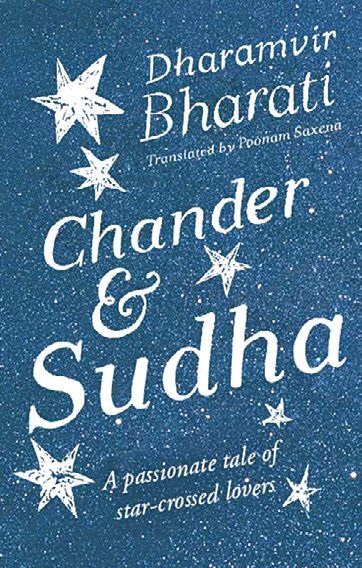When Ophelia scatters bits of her sanity with a bunch of flowers in a final heartbreaking farewell to the world where her father has been killed by the man she loves; when Devdas breathes his last, his gaze transfixed upon a gate that will never afford him a glimpse of the woman he has destroyed and for whom he has destroyed himself; when Maggie in Mill On the Floss cannot either escape her love for Stephen, or face it and when the Deus ex machina…the great flood carries her away from all her conflicts; or when Gatsby in his forlorn garden tries to make sense of Daisy’s betrayal moments before his death; when Jude, the obscure and Sue Bridehead watch their ‘unholy’ love end in great tragedy; when Tess of the d’Urbervilles can never go back to the young girl she was before her rape, you know how great literature is born. It is born of the final, shattering recognition of human mortality, of non-negotiable mistakes, of losses that cannot be repaired, of conflicts we cannot resolve, unrequited love, fate’s cold and implacable gaze when a missing piece of the soul can never found like in Farhat Ishtiaq’s Pakistani drama Mata-e-Jaan Hai Tu that is now being televised on Zindagi channel. The greatest writers do not just show why fate is so recalcitrant, they show us why it is so. Devdas realigned his stars to give up the woman he loved. Gatsby refused to give up on love when it had given up on him. Maggie could have chosen love over the final sublimation of her unfinished life in a flood and it is this ache of, “could have been’’ that makes certain stories so unforgettable. This is also the reason why
Gunahon Ka Devta, Hindi literary giant Dharamvir Bharati’s novel about futile sacrifices and endless love has not faded away with time and has been recently translated by Poonam Saxena as Chander & Sudha (Penguin Viking) in order to draw in a whole new generation of readers.
It is a perfect time to revisit the story because love has never been so easy or so tough. On one hand, no goodbye is final in this age when we can reach out to a lost love with just a few clicks and on the other, love though accessible, is mercurial and short-lived. And when it is not, it still has to fight its way out of little boxes of gender, caste, religion, gotras, specifications imposed by familial obligations and the sanctification of the status quo. The challenges are different and yet the same as the ones faced by Chander and Sudha in Allahabad of the 1940s when young men and women had to obey tradition, regardless of what was at stake.
Sudha, a privileged and sheltered daughter of a seemingly open-minded intellectual, has never known any men other than her father and Chander who has grown up with her. Yet, when the time comes for the two to formalise their relationship, Chander much like Devdas, uses a sense of misplaced morality to push the love of his life away, putting both Sudha and himself on the path of inevitable destruction. Regardless of the excuses behind the separation (he is from a different caste and is indebted to her father), the fact is that he pushes Sudha into forced intimacy with a man she doesn’t love and then watches her helplessly as she loses herself in a fog of spirituality. He himself cannot come to terms with the fact that she is now sharing her life and her body with another man. He falls into one self-destructive path after another till it all spirals out of control and ends in inevitable tragedy. Like Sarat Chandra’s Charitraheen where Savitri and Satish despite being devoted to each other, cannot come together because in the orthodox milieu they live in, their love has no future, in Chander & Sudha also, the protagonists are doomed to pin for each other till eternity because they have not yet fathomed the extent of their love for each other and will pay for their short-sightedness one painful breath at a time. Like all great tragedies, Chander & Sudha is also about love that defies death. The kind that seems impossible till we learn of a Syrian mountaineer who lost his wife to childbirth and then spent a few crazed minutes photographing her hands and her face, to somehow keep a bit of her, for himself.
Bharati, the man who turned Dharam Yug into the leading literary voice of the country and wrote classics like Sooraj Ka Saatwan Ghoda and Andha Yug was influenced by Zola, Tolstoy, Dickens, Wilde, Dostoevsky and Sarat Chandra Chatterji, all of whom drew blood when they wrote about the conflicts between the human and the elemental, between the inevitable and the avoidable.
The translation is obviously a labour of love but nothing really can capture what Bharati did so effortlessly.
The agony and the ecstasy of falling slowly and deliciously in love in Allahabad’s tree-shaded avenues and never realising that there never would be another love like this one.
 with The New Indian Express Reema Moudgil works for The New Indian Express, Bangalore, is the author of Perfect Eight, the editor of Chicken Soup for the Soul-Indian Women, an artist, a former RJ and a mother. She dreams of a cottage of her own that opens to a garden and where she can write more books, paint, listen to music and just be silent with her cats.
with The New Indian Express Reema Moudgil works for The New Indian Express, Bangalore, is the author of Perfect Eight, the editor of Chicken Soup for the Soul-Indian Women, an artist, a former RJ and a mother. She dreams of a cottage of her own that opens to a garden and where she can write more books, paint, listen to music and just be silent with her cats.






